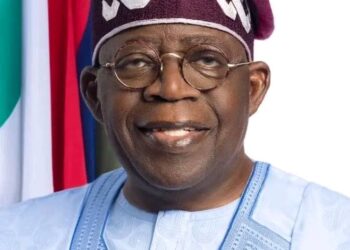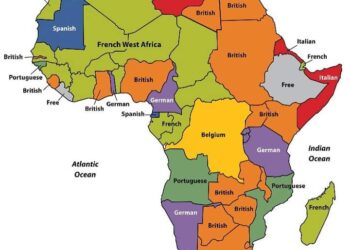Nigeria’s out-of-school-children index has reached an alarming stage of 13.
2 million, the Universal Basic Education Commission (UBEC), has disclosed.
The Commission’s Director of Social Mobilisation, Bello Kakara, who made the disclosure yesterday in Abuja, said the figure was aided from 10.5 million last year by the displacement of by Boko Haram insurgents.
Speaking in Abuja at a media forum on Northern Nigeria Traditional Rulers Conference on Out-of-School children, organised by United Nations Children Fund (UNICEF) and the Sultan Foundation for Peace and Development and the UBEC, Kakara said the figure was uncovered after the last FME/UNICEF demographic health survey.
In his contributions, the Emir of Argungu and Co-ordinator of Sultan Fondation for Peace and Development, Alhaji Samaila Muhammed Mera, said arrangements had been concluded to bring traditional rleaders in the north together to sign “Commitment for Action” document on how to increase the number of children and retain them in school in northern Nigeria.
He said a two-day conference had been scheduled for Kaduna from October 10 to 11, where stakeholders from North-west and north-east would brainstorm and proffer solutions the raging problems of out-of-school children.
Executive Secretary, National Commission for Mass Literacy, Adult and Non-formal Education, Professor Abba Abubakar Haladu, described outof-School children syndrome as intractable.
He said Nigeria as a signatory to Sustainable Development Goals (SDG), was committed to equitable and quality education for the Nigerian child, adding that UNICEF was ensuring that the target year of 2030 was achievable.
He said it was on record that Nigeria haboured the largest number of out-of-school children in the world and adult illiteracy, stressing that this was affecting quality basic education in the country.
Haladu described the proposed conference as unique, adding that the increasing rate of out-ofschool children, particularly in the northern part of the country, was becoming worrisome.
UNICEF’S Chief Education Officer for Nigeria, Terry Durnnian, said besides traditional rulers, decision makers, religious leaders and legislators are expected to participate in the conference.
“They will brainstorm on the challenges and obstacles of getting children in schools and decide on actions they can take to increase the number of children accessing education in northern Nigeria”, he said.
He said the final “Agenda for Action” document would be endorsed by the two chairmen of of the conference, vis-à-vis the Sultan of Sokoto for the North-West and the Shehu of Borno for the North-East.
“Each of the participating Emirs will sign a Commitment of Action, signifying his commitment to ensuring that all children out of school within his emirate council are reached and enrolled in schools”, UNICEF stated.
The Fund stated that the reason more children were out of school in northern Nigeria was rooted in socio- cultural and economic environment barriers and bottlenecks of the educational success of girls and boys.
It identified the barriers to include “the cost of education, poverty and negative perceptions to formal education”, saying these factors influenced the educational choices parents make in the region.
Out-of-School children index hits 13.2 million – UBEC From left: Executive Secretary, National Commission for Mass Literacy, Adult and Non-formal Education, Professor Abba Haladu, Emir of Argungu and Co-ordinator, Sultan Foundation for Peace and Development, Alh.
Samila Mera, UNICEF’s Education Officer, Terry Durnnian and Director, Social Mobilisation, UBEC, Bello Kakara during the media forum yesterday in Abuja Photo: Martin Paul UNICEF also identified low budgetary allocation to education sector as another factor influencing enrolment and retention of children in northern Nigeria.
“A trend analysis of budgetary allocations for education at the national level shows that between 2010 and 2018, the highest education budget allocation received was in 2014 with 10 per cent of the total budget.
“In 2017 and 2018, education received less than eight per cent and at the state level, the situation is mixed.
In 2017, some state budgeted as low as eight per cent, while others allocated as high as 33 per cent of the state budget on education, while the actual release of the funds, tends to be lower than the amount budgeted”, UNICEF asserted.



